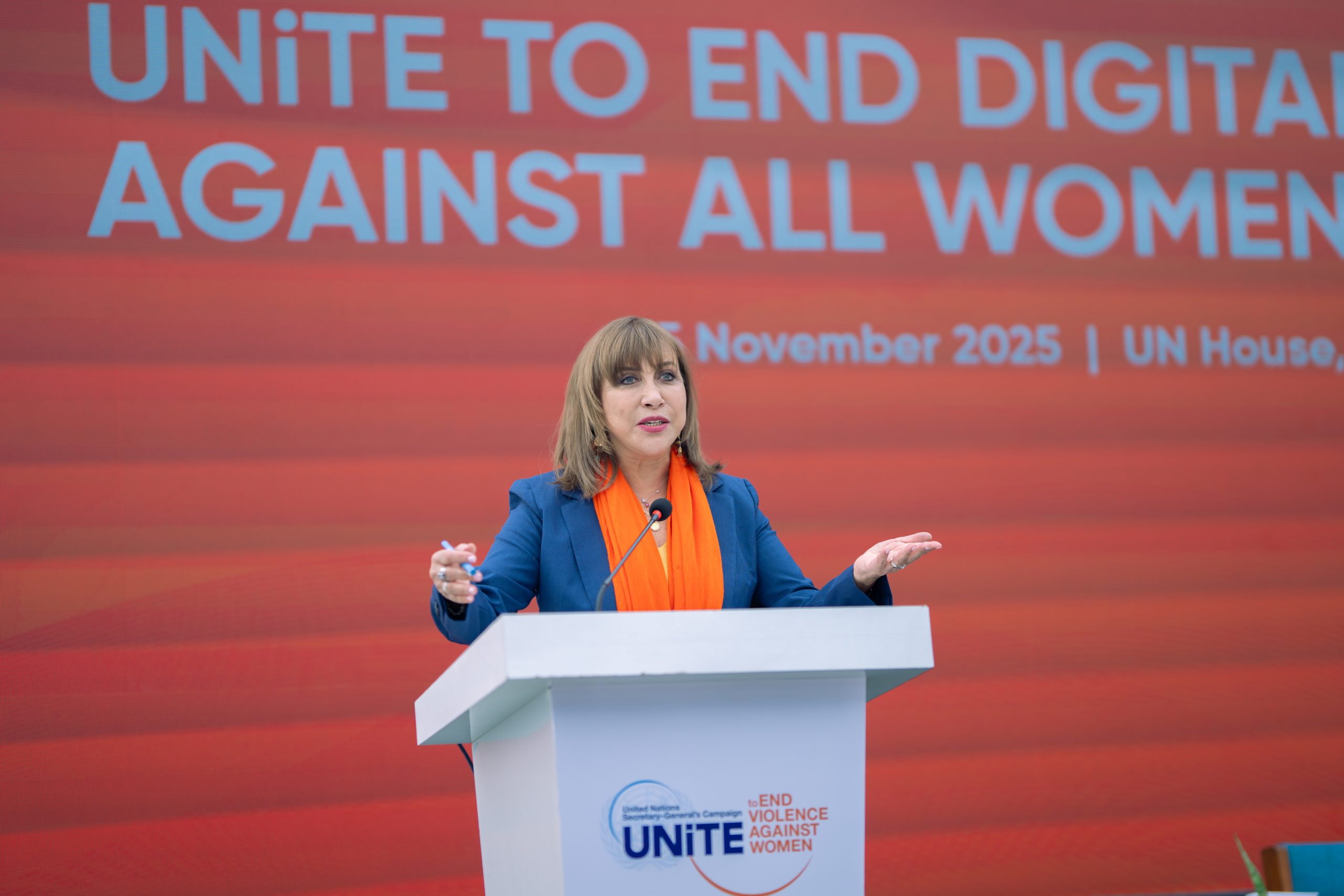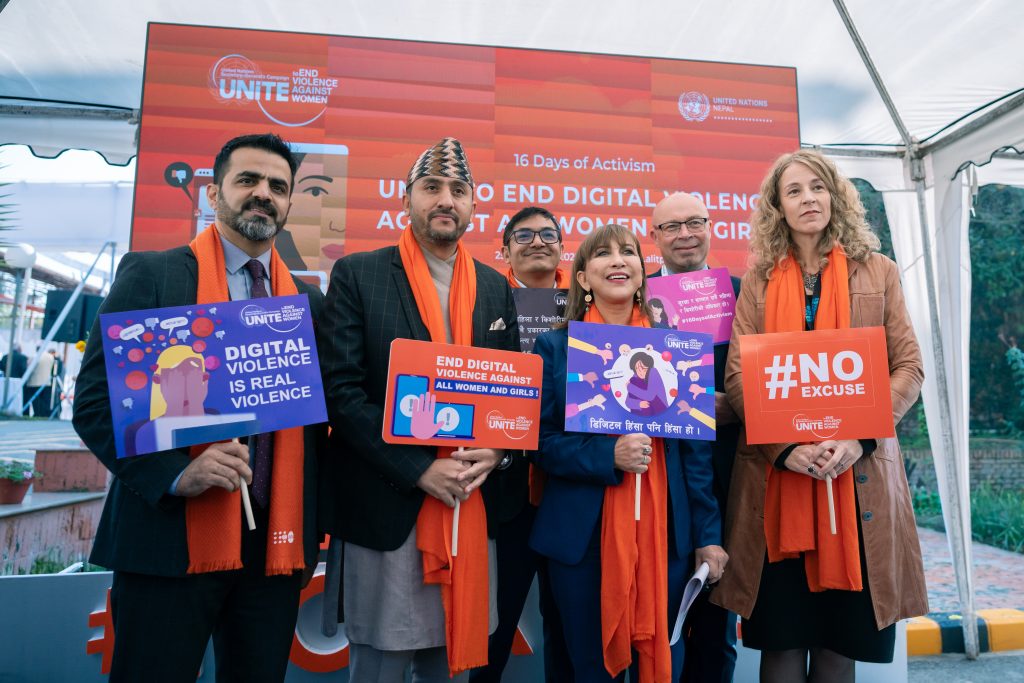
Kathmandu: Digital abuse and digital violence are among the fastest-growing threats to women’s rights worldwide. Studies show that up to half of women globally have faced some form of online harassment or abuse. For adolescent girls, it often begins as early as ages twelve to fourteen, at a time when their social and emotional development is increasingly unfolding online.
On November 25, the United Nations in Nepal kicked off the 16 Days of Activism Against Gender-Based Violence together with the Hon’ble Minister for Communication and Information Technology Jagdish Kharel, reaffirming Nepal’s commitment to making digital spaces safer for women and girls. This year’s global theme, Unite to End Digital Violence against All Women and Girls, underscores the urgency of protecting young people in rapidly expanding digital spaces.
Speaking at the event, Minister Kharel emphasized the need of having safe, inclusive and empowering digital ecosystem for every nepali citizen. He noted that, “digital safety is now central to civic participation, access to information and the full exercise of rights in Nepal’s evolving digital landscape.”

The event brought together government representatives, UN agencies, development partners, youth networks, civil society, private sector, and media under one clear message: Digital violence is real violence. Online abuse, sexual extortion, non-consensual sharing of images and the spread of misogynistic content inflict real harm on the lives, dignity and autonomy of women and girls.
Speaking on behalf of the United Nations in Nepal, Resident Coordinator Hanaa Singer-Hamdy underscored that digital violence is not only an attack on the rights, dignity and autonomy of women and girls but a direct threat to their participation in public life. She warned that online abuse is silencing women journalists, discouraging women leaders, and pushing girls away from digital spaces where their voices are urgently needed. Protecting women and girls online therefore demands a whole-of-society effort to challenge harmful norms, strengthen accountability, and invest in systems that safeguard digital rights. She further highlighted the urgency of digital literacy and online safety education for adolescents—especially boys—to build resilience, transform attitudes, and promote respectful online behaviour.”
The event featured a youth-designed mural symbolizing collective commitment to reclaiming safe digital spaces, along with a fireside chat with influencers and digital rights experts on the rise of online abuse and the urgent need for stronger protections.
Young participants shared their experiences of online harassment and the importance of being believed, supported and empowered to live a safe digital life. They asked better support systems for survivors, addressing impact of harmful content and building platforms that are safe for women and girls.
The UNiTE 2025 campaign runs until 10 December, under the theme “UNiTE to End Digital Violence against All Women and Girls” urging everyone to stand together against digital violence and uphold digital rights as fundamental human rights. The campaign calls on parents, educators, policymakers and technology companies to take shared responsibility for creating online environments where all women and girls can learn, participate and thrive without fear.